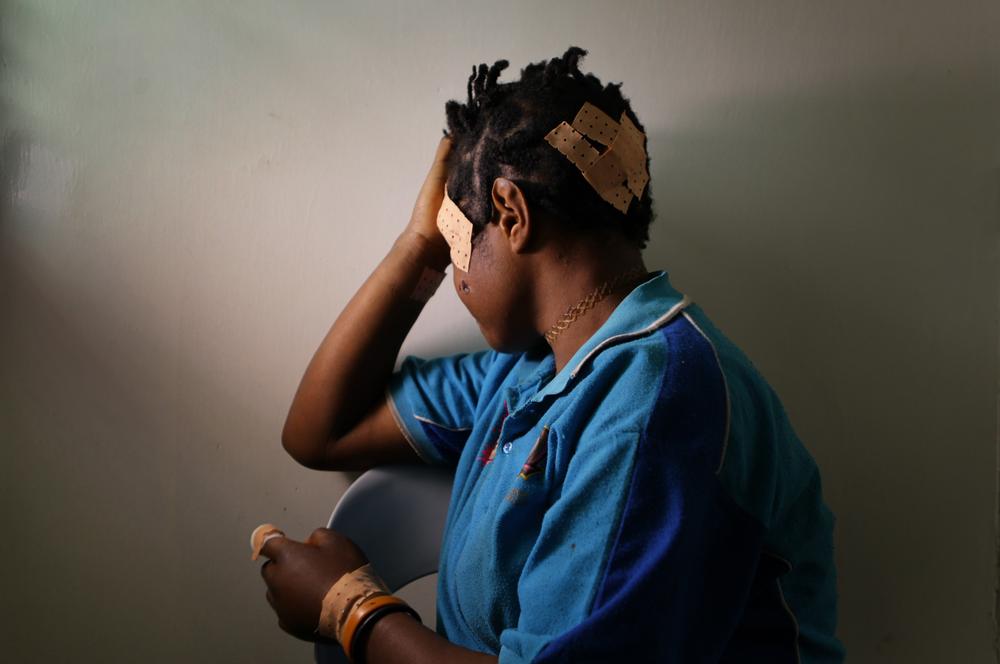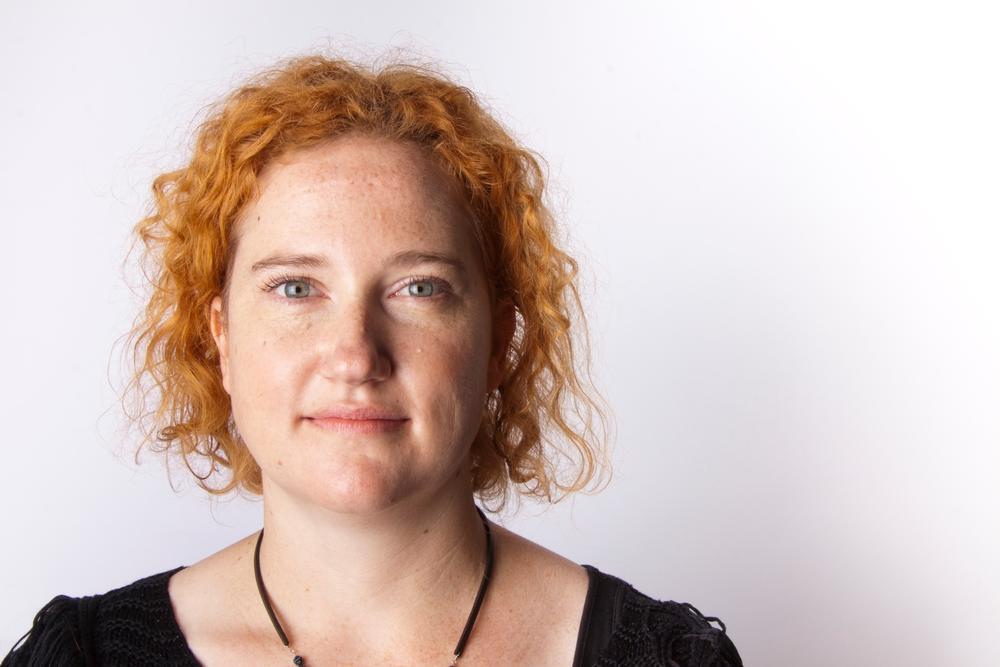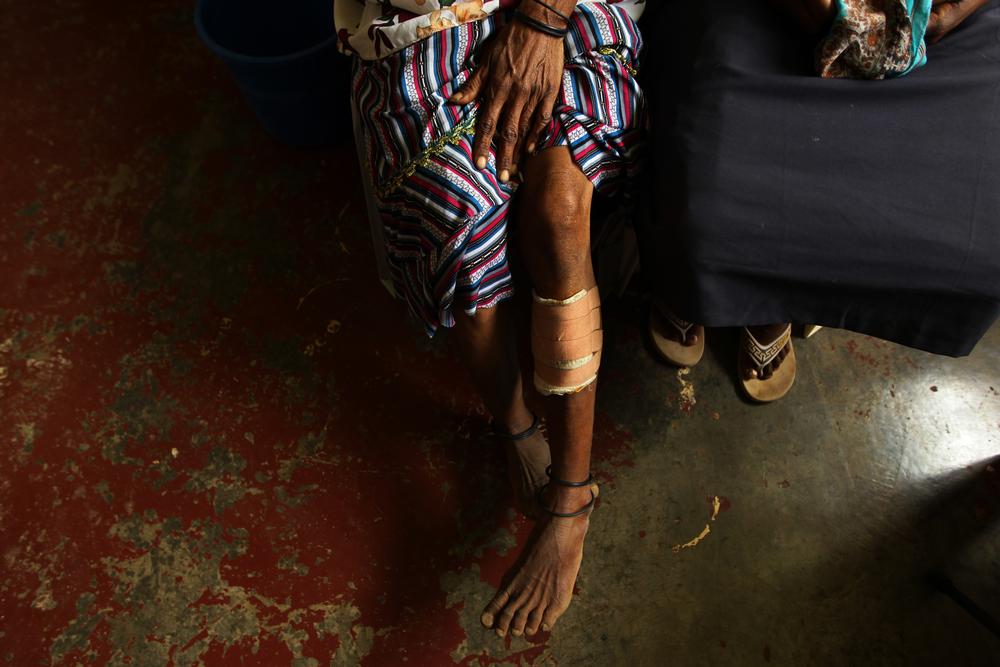Papua New Guinea: "Sexual violence is 'normal' here"
Family and sexual violence has reached epidemic proportions across the globe. One woman in three will experience a form of sexual violence in her lifetime.
But, in Papua New Guinea (PNG) the rates are significantly higher. A recent UN study has found that one in five women’s first experience of sex in PNG is rape, and that one-third of men are sexually abused as children.
Although studies have shown family and sexual violence (FSV) to be a humanitarian crisis in PNG for decades, only in recent years have we seen the first steps towards an effective response.
Despite this, there remains an urgent need to provide survivors of FSV with access to quality, confidential medical and psychosocial care across the country, as well as the legal, social and protective services they need and deserve.
MSF has demonstrated that this is possible in PNG. Our experience in providing medical care for survivors of FSV in Lae, Tari and now Port Moresby has brought to light a range of significant challenges that healthcare providers face in responding to FSV.
But overwhelmingly this experience has shown that a quality medical response, coupled with effective community awareness, can deliver concrete benefits for survivors by providing them with essential curative and preventive care.

Help us prepare for the next emergency
Letter from PNG
Kate White is a nurse from Brisbane, Australia who has carried out six assignments with MSF.
I am currently working in Tari in the Southern Highlands of Papua New Guinea. Tari is one of the most beautiful places I have ever been. All around the town are mountains covered with trees.
In the morning the cloud rolls into the valley and you can see the tops of the mountains poking through. It is so beautiful it is almost magical.
On a Saturday night towards the end of my mission, one of our logisticians asks me what my top moments in Tari have been.
I think about all the experiences I have had as medical team leader and come up with two moments that had a real impact.
“It is seen as a woman’s fault”
The first was a patient that we received in our Family Support Centre, which offers integrated care to survivors of family and sexual violence.
Basically we provide a one-stop-shop where people can access both medical and psychosocial care for the injuries they have sustained from violence.
The patient was a woman in her late 30s, not that much older than me, who had been walking home from the market when a man grabbed her, dragged her into bushes, threatened her with a knife and raped her. She came to us as she was very scared about getting pregnant from the rape.
She was a single mother of three and could not afford to have another child. She lived in the compound of her husband’s family even though it had been many years since she had seen him. But if they found out that she had been raped they would throw her out. In Tari, it is seen as a woman’s fault if she is raped.
The most confronting part was that this was the fourth time in her short life that she had been raped. Yet her level of trauma appeared quite low. In fact, one of her biggest concerns was that I was too skinny and needed to be fed. She offered to give me veggies from her garden to fatten me up.
We provided her with drugs to prevent HIV and other STIs, emergency contraception to prevent pregnancy, vaccinations to prevent tetanus and Hepatitis B as well as psychosocial support.
Three days later she returned to give me the vegetables and some seeds so that I could grow my own. She made me want to cry: she had gone through an incredibly awful experience yet all she could do was think of others.
Accidental stabbing
The second moment was a patient who became much closer to my heart than I would normally allow. His name was Will.
I received a call from a company in the area to say that a child had walked into their clinic with a penetrating wound to his abdomen. He was stable but needed urgent surgery and they were organizing a helicopter to bring him to Tari if we would accept him.
In addition to running the Family Support Centre, MSF also provides emergency and trauma surgery to the people of Tari and Hela province, so I immediately said yes.
The surgeon and I went to the airport and finally, the helicopter landed to reveal a scared-looking seven-year-old. I picked him up and carried him to our car and he stared at me with his big brown eyes.
She made me want to cry: she had gone through an incredibly awful experience yet all she could do was think of others.
I remember thinking that he had the most incredible eyelashes. At the hospital, we removed his dressing to reveal that his bowel was on the outside. He was taken straight to the operating theatre.
While the rest of the team was operating I tried to discover what had happened. It turned out that Will and his older sibling had been playing and he was accidentally stabbed. I was not surprised because unfortunately, this is an all too familiar story in Tari.
As Will recovered we built quite a rapport. After ward rounds I would take him out in a wheelchair to ‘harass’ other people. We would create water guns out of syringes and target passers-by. By the time he left the hospital, 10 days later, he was back to his old mischievous self.
Violence should not be ‘normal’
Writing this letter I had to confront the fact that what I have been seeing should not be normal. Yet during the nine months that I have been in Tari it has become that, completely normal.
Violence in all forms, including sexual violence, has become normalised for the population here. But there are many people trying to change this.
Not only is MSF working hard to create awareness and change but individuals are setting up safe houses for women and children affected by family and sexual violence. And gradually we see the attitude of our own local staff and patients changing.
In the end, I leave with hope. Hope that more of the community will want and accept change. Hope that violence becomes the exception to the rule and not the rule itself. Hope that one day the beauty of Tari lies not only within the landscape but also with a community that has changed their society for the better.


